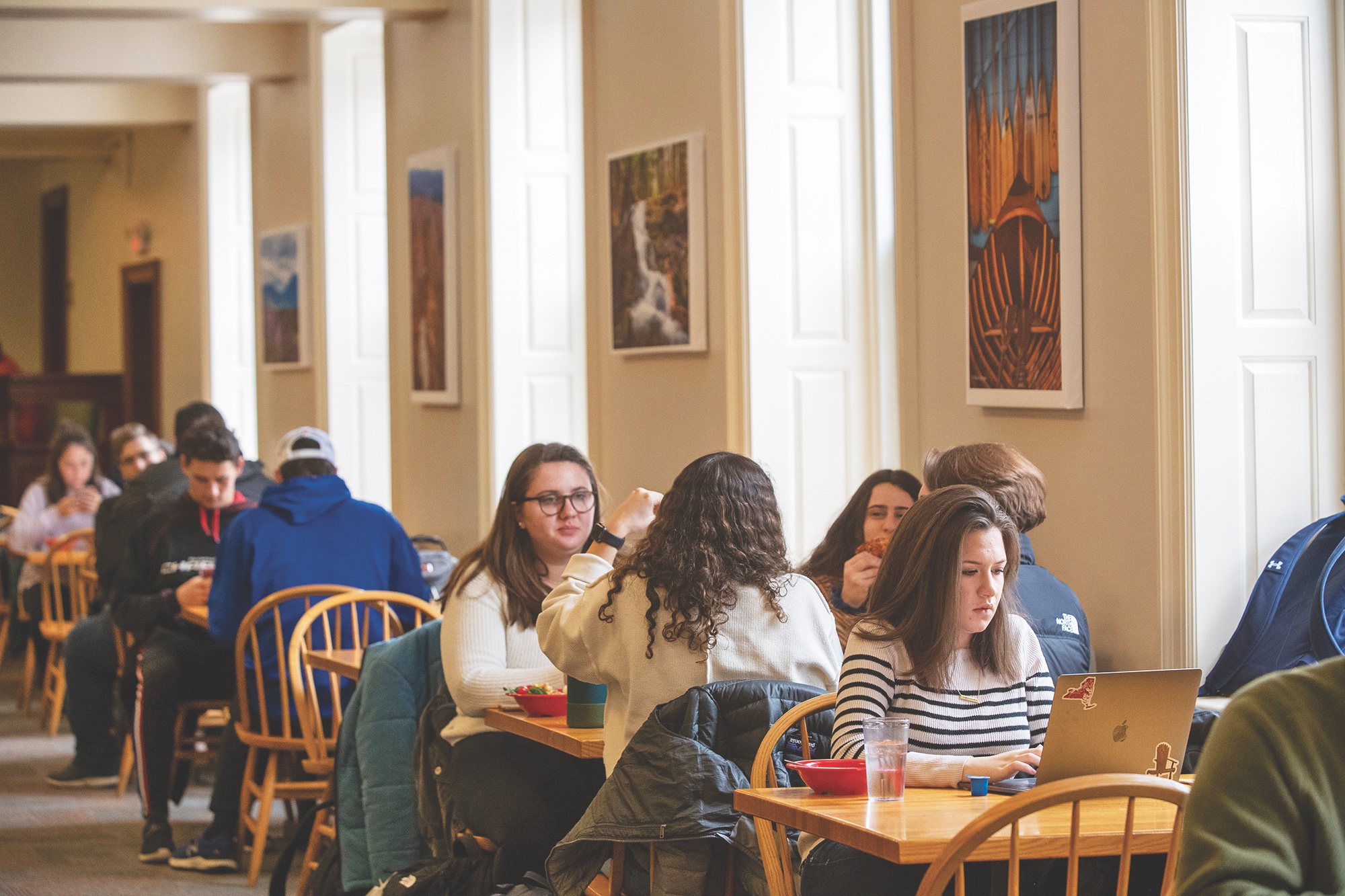Time For Food and Time For Friends
Lunchtime. Around noon, everyone is grabbing food as morning classes end. Time it wrong, and the Dana line is already out the door. The Pub is not any better. Students need to place their orders in advance or hope there are not too many people surrounding the meal exchange table. Adrianna Nothnagle ’24 tries to get her food as quickly as possible, heading back to her room to eat. “I need to get to class right afterward,” she says. “I’m on a time crunch.”
Students maximize efficiency by eating quickly, illustrating how society prioritizes time, according to Assistant Professor Erica Morrell. “The fact that as a society, we are generally eating less together. It’s a sign that we are prioritizing cultural values like individualism and capitalism,” Morrell says.
Student time is valuable, especially when academics pile up amid athletics, clubs and social life. Commensality— the act of eating together— is often pushed to the side if it is not convenient. In the short term, there are immediate gains to eating quickly or alone, according to Morrell. In the long-run, unhealthy eating and socializing habits pile up, canceling the short-term benefits of convenience.
Commensality is one way that students can balance the demands of college but is not necessary to have a healthy social life. “Socializing doesn’t need to be around food,” Morrell says. “It is just one of those daily tasks— like a ritual— that reminds us to connect.”
Community Assistant Brody Campbell ’24 uses candy to initiate conversations with his residents. “A lot of time, my residents take study breaks to stop by, take a piece of candy, and then we end up talking,” he says. “It’s a good way to get them to my open-door hours so I can check in with them.”
Everyone needs to eat, and consuming food is something that everyone has in common. As Morrell puts it, food is an equalizer. “It’s good for students to notice if they are feeling lonely or disconnected to use food as an easy way to remind themselves to connect with other people,” she says.
Campus Kitchens Serve Shift Leader Catherine O’Keeffe ’22 helps fulfill the club’s mission of reducing food insecurity and food waste. O’Keeffe can build a relationship with the community along with providing healthy food options. “One of the community members, I don’t even know how much he comes for the food,” she says. “He comes primarily for the social aspect and to see people.”
Through Campus Kitchens, O’Keeffe has become closer with other students, too. “There’s something about when you all have the same common beliefs and goals as a club. It definitely brings you together when you are creating a meal and giving it to the community,” she says.
In her role with Campus Kitchens, O’Keeffe has met a few students she has seen around campus. She considers these students as friends, despite not knowing them before.
Nothnagle still tries to get dinner with friends despite being on a time crunch balancing academics and athletics. “My social life is when I go out and eat with my friends,” she says. “If I didn’t go out and eat with my friends, I wouldn’t see them. Eating meals is one of the only times we get to spend together.”



